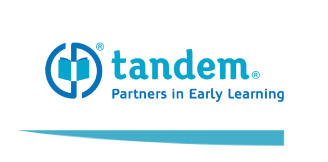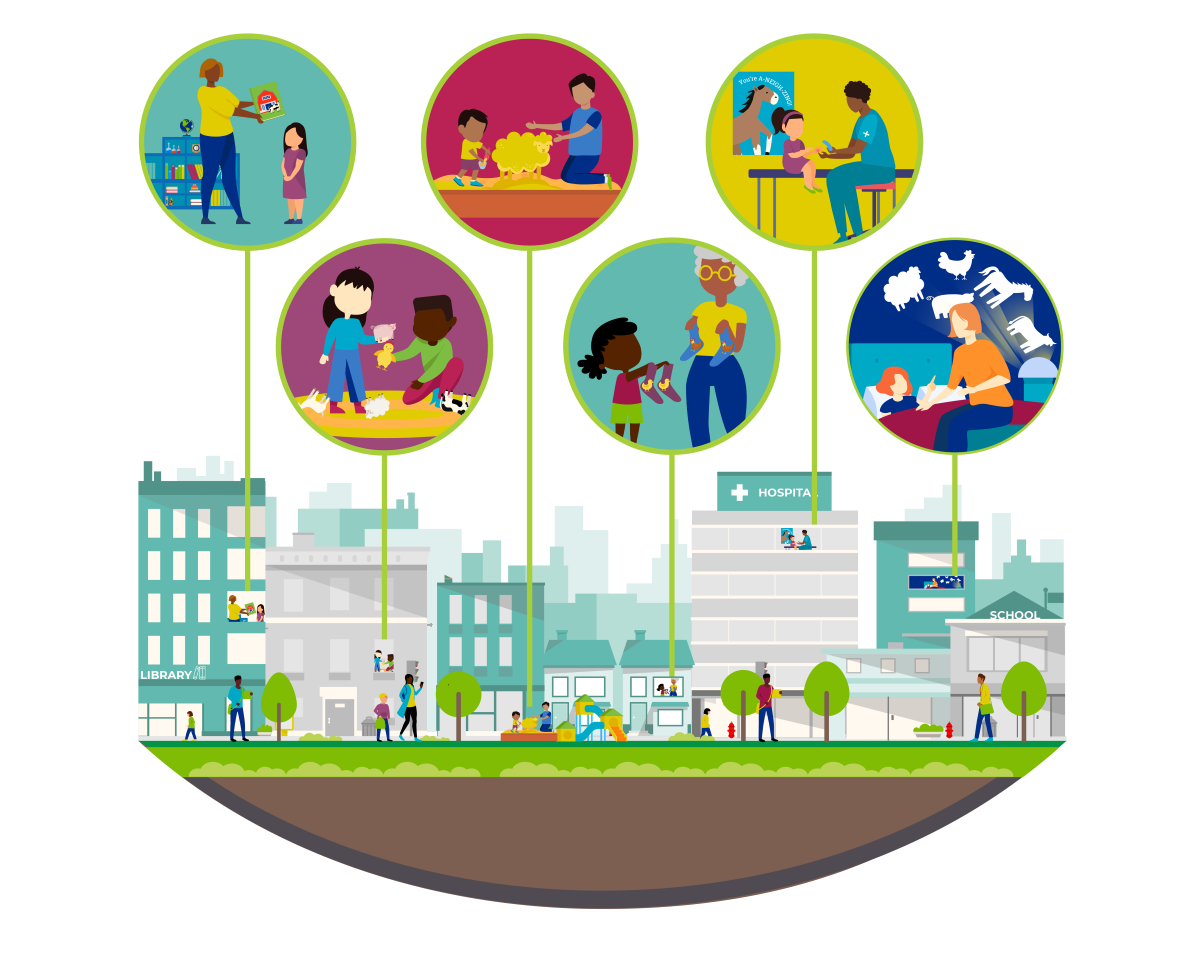 Explore Tandem’s growing collection of virtual storytime videos by category. Our interactive videos feature high-quality children’s books, and each video focuses on developing specific early learning skills based on the California Preschool Learning Foundations.
Explore Tandem’s growing collection of virtual storytime videos by category. Our interactive videos feature high-quality children’s books, and each video focuses on developing specific early learning skills based on the California Preschool Learning Foundations.
Search by language or skill-building topics and enjoy our diversity and inclusion list including titles featuring LGBTQIA+ characters and characters of color. You may also search for videos and resources alphabetically by children’s book title.
Every virtual storytime video description includes talking tips, vocabulary words to practice, and activities you can try at home. Enjoy a story today, and keep the learning going.
Languages
Cantonese
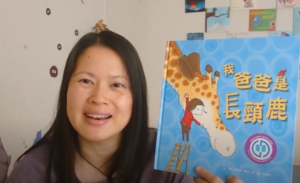 這個系列有我們最喜歡講粵語的兒童書籍!
這個系列有我們最喜歡講粵語的兒童書籍!
請看視頻 »
English
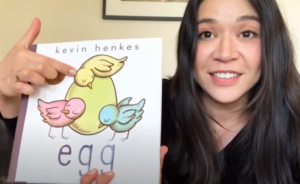 The videos in this collection are all shared in English, and feature stories on a variety of topics. Each video focuses on a specific kindergarten readiness skill based on the California Preschool Learning foundations.
The videos in this collection are all shared in English, and feature stories on a variety of topics. Each video focuses on a specific kindergarten readiness skill based on the California Preschool Learning foundations.
View videos »
español / Spanish
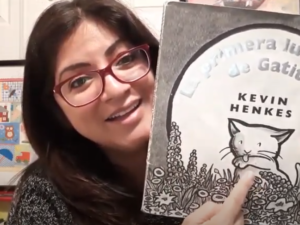 ¡Esta selección incluye algunos de nuestros libros infantiles favoritos presentados en español!
¡Esta selección incluye algunos de nuestros libros infantiles favoritos presentados en español!
Ver videos »
Other Languages
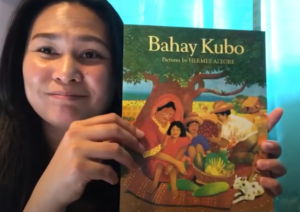 Enjoy these videos sharing in a variety of languages, including Tagalog, Bikol, Filipino, Dari, and French! Even if you do not know how to speak a language, you can still share and enjoy children’s books in other languages. Look at the pages, and talk about what you see. Ask your child questions about what they see. Any time spent sharing a book and talking about the illustrations in your home language will support your child’s early literacy an language development.
Enjoy these videos sharing in a variety of languages, including Tagalog, Bikol, Filipino, Dari, and French! Even if you do not know how to speak a language, you can still share and enjoy children’s books in other languages. Look at the pages, and talk about what you see. Ask your child questions about what they see. Any time spent sharing a book and talking about the illustrations in your home language will support your child’s early literacy an language development.
View videos »
Skillbuilding Videos based on the California Preschool Learning Foundations
Foundations in Language and Literacy
Phonological Awareness
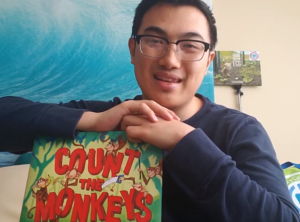 A child’s ability to recognize the prosody or “music” of a language and to notice, think about, and manipulate the individual sounds in words is an important early literacy skill. Rhyming books and songs are great tools for developing this skill and laying the groundwork for “sounding words out” when learning to read.
A child’s ability to recognize the prosody or “music” of a language and to notice, think about, and manipulate the individual sounds in words is an important early literacy skill. Rhyming books and songs are great tools for developing this skill and laying the groundwork for “sounding words out” when learning to read.
View videos »
Print Awareness
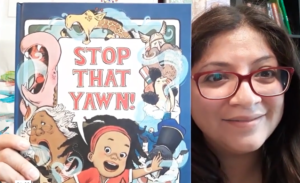 Before they can begin the process of learning to read, young children must become comfortable with holding and handling books and identifying letters in print. When we focus children’s attention on the printed words we are reading, they begin to recognize that those symbols have sounds and meanings. Asking children to help turn pages and hold a book is also a great way to foster print awareness and builds confidence.
Before they can begin the process of learning to read, young children must become comfortable with holding and handling books and identifying letters in print. When we focus children’s attention on the printed words we are reading, they begin to recognize that those symbols have sounds and meanings. Asking children to help turn pages and hold a book is also a great way to foster print awareness and builds confidence.
View videos »
Vocabulary
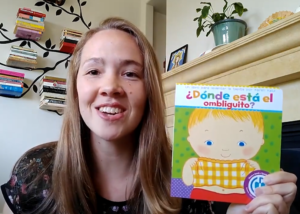 Young children are developmentally equipped with an incredible memory for learning new words. The more words they hear, the more they will begin to develop broader vocabularies. A strong vocabulary allows children to express themselves more accurately and improves reading comprehension.
Young children are developmentally equipped with an incredible memory for learning new words. The more words they hear, the more they will begin to develop broader vocabularies. A strong vocabulary allows children to express themselves more accurately and improves reading comprehension.
View videos »
Foundations in Mathematics
Early Math (Numeracy)
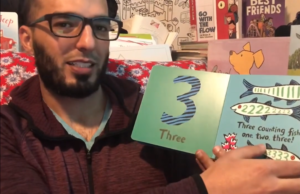 A good foundation in early math prepares children for “math thinking,” and for later academic success. Early Math includes number sense, classifications and patterning, measurement, mathematical reasoning, and geometry (shapes). A good “math storybook” will include elements of these foundations. Counting together, pointing out numbers in print, identifying shapes, and using relational language (bigger, smaller, close, far) are all ways to develop a child’s early math skills while sharing a book together.
A good foundation in early math prepares children for “math thinking,” and for later academic success. Early Math includes number sense, classifications and patterning, measurement, mathematical reasoning, and geometry (shapes). A good “math storybook” will include elements of these foundations. Counting together, pointing out numbers in print, identifying shapes, and using relational language (bigger, smaller, close, far) are all ways to develop a child’s early math skills while sharing a book together.
View videos »
Tips for Supporting Early Math Skills
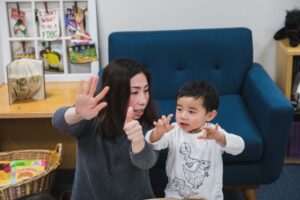
Photo by Drew Bird Photography
Learn more about supporting young children’s early math learning. These videos share activity ideas that are simple, fun, and can be easily enjoyed using common items found in the home.
This collection of videos are the result of a collaboration of Tandem and Development and Research in Early Math (DREME) researchers. Learn more about DREME at dreme.stanford.edu.
View videos »
Foundations in Science/Language and Literacy
Critical Thinking
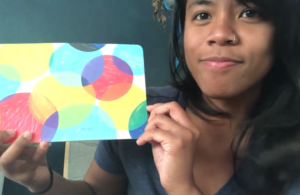 The ability to use information and skills in a variety of ways to solve problems prepares children to handle complex tasks such academic areas including math, science, and reading. We can foster this skill by encouraging children to answer questions and make predictions as we read together.
The ability to use information and skills in a variety of ways to solve problems prepares children to handle complex tasks such academic areas including math, science, and reading. We can foster this skill by encouraging children to answer questions and make predictions as we read together.
View videos »
Foundations in Social-Emotional Development
Self-Regulation
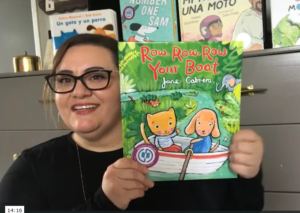 Read Alouds that engage children in structured movement games and verbal participation help develop the ability to manage impulses and ignore distractions without stifling creativity or motivation. The better a child can stay calmly focused and alert, the better they will be at handling more complex tasks and working cooperatively with others.
Read Alouds that engage children in structured movement games and verbal participation help develop the ability to manage impulses and ignore distractions without stifling creativity or motivation. The better a child can stay calmly focused and alert, the better they will be at handling more complex tasks and working cooperatively with others.
View videos »
Sense of Self
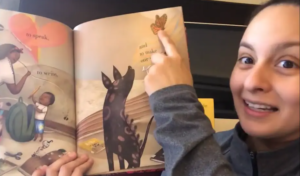 When children are aware of their own thoughts and feelings, they are better able to communicate their needs and ideas to other people. A deeper understanding of themselves supports children in recognizing the emotions and perspectives of others allowing for empathy. A strong sense of self gives children confidence in their ability to acquire new knowledge and skills, which builds enthusiasm and motivation for learning.
When children are aware of their own thoughts and feelings, they are better able to communicate their needs and ideas to other people. A deeper understanding of themselves supports children in recognizing the emotions and perspectives of others allowing for empathy. A strong sense of self gives children confidence in their ability to acquire new knowledge and skills, which builds enthusiasm and motivation for learning.
View videos »
Social Interaction
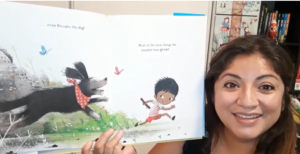 In order to be a thriving member of society, children must learn how to form healthy relationships with others, including familiar adults and peers. Knowing how to interact socially supports children in learning how to function within a group through cooperation and responsibility.
In order to be a thriving member of society, children must learn how to form healthy relationships with others, including familiar adults and peers. Knowing how to interact socially supports children in learning how to function within a group through cooperation and responsibility.
View videos »
Relationships
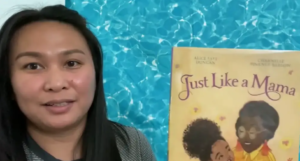 Children need to build healthy attachments to parents, caregivers, and close friends. This includes understanding how to respect and keep boundaries, as well as express care and love for others.
Children need to build healthy attachments to parents, caregivers, and close friends. This includes understanding how to respect and keep boundaries, as well as express care and love for others.
View videos »
Diversity and Inclusion
Characters of Color
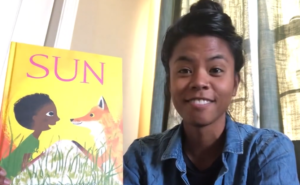 In this collection, we’re sharing some of our favorite children’s books that feature characters of color and amplify diverse voices.
In this collection, we’re sharing some of our favorite children’s books that feature characters of color and amplify diverse voices.
View videos »
LGBTQIA+ characters and topics
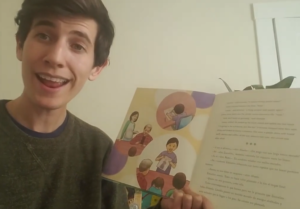 These read alouds offer stories featuring LGBTQIA+ characters or topics. Books are a great way to start a conversation with your young child about diversity and inclusion. Talk about what you see on the page!
These read alouds offer stories featuring LGBTQIA+ characters or topics. Books are a great way to start a conversation with your young child about diversity and inclusion. Talk about what you see on the page!
